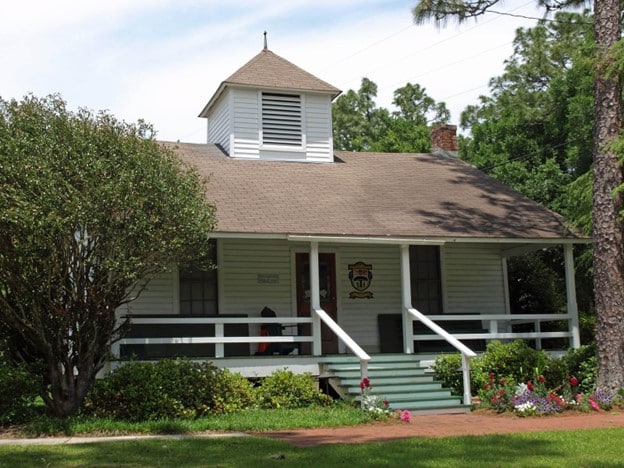Need to tackle a big cleanup project? Whether you're tackling a home renovation, cleaning out a garage, or managing commercial waste, renting a dumpster is often the most efficient and cost-effective solution. This comprehensive guide will walk you through everything you need to know about dumpster rentals, from choosing the right size to understanding the associated costs and ensuring environmentally responsible disposal.
What is Dumpster Rental?
Dumpster rental, also known as container rental or roll-off container rental, is a waste management service that provides temporary, large-capacity containers for the disposal of various types of waste materials. These containers come in a range of sizes to accommodate different project needs, from small residential cleanups to large-scale commercial and construction projects. They offer a convenient and efficient way to manage waste disposal, eliminating the hassle of multiple trips to the landfill or transfer station. This service is ideal for managing construction debris, household junk, bulky waste items, and more.

Why Choose Dumpster Rental?
Choosing dumpster rental offers several key advantages for efficient waste management. First and foremost is the unmatched convenience. Instead of multiple trips to dispose of waste, you have a dedicated, on-site container for rubbish removal. This saves you time and effort, allowing you to focus on your project. Moreover, dumpster rentals are highly efficient, streamlining the waste disposal process and ensuring a cleaner, more organized workspace. They are also a cost-effective solution, especially for larger projects where hauling waste yourself would be significantly more expensive and time-consuming. Whether you are managing residential, commercial, or industrial waste, a dumpster simplifies waste management.
Types of Dumpsters Available
Dumpsters are available in various sizes and types to cater to diverse needs. The most common types include:
Residential Dumpsters
These smaller dumpsters are perfect for household cleanouts, yard waste removal, and smaller renovation projects. They are designed to handle typical household waste, bulky items, and yard debris. The sizes typically range from 10 to 20 cubic yards. Residential waste disposal is made much simpler with this option.
Commercial Dumpsters
Larger than residential units, commercial dumpsters are ideal for businesses and properties generating significant waste. They are frequently used for managing commercial waste, industrial waste, and other high-volume disposal needs. Sizes range widely to accommodate larger commercial projects.
Construction Dumpsters
Construction and demolition projects require specialized dumpsters to handle heavier materials and larger volumes of debris. Construction waste, demolition debris, and other heavy materials are easily managed in construction-specific dumpsters. These are usually the largest size option, available in 20-40 cubic yard capacities or even larger.
How to Rent a Dumpster
Renting a dumpster involves a straightforward process, but careful planning is essential for a smooth experience.
Step 1: Determine Your Needs
Before you begin, accurately assess your waste disposal needs. Consider the volume and type of waste, along with any size restrictions or weight limits imposed by the rental provider or local regulations. Understanding these limits will prevent costly overages or permit issues.
Step 2: Understand Local Regulations
Check with your local authorities regarding any necessary permits or zoning laws for dumpster placement. Some areas require permits for dumpster rentals, particularly for on-street placement. Understanding these regulations upfront will prevent delays or fines. Familiarize yourself with any restrictions on waste types before making your decision.
Step 3: Choose a Provider
Research different dumpster rental providers in your area. Compare pricing, available dumpster sizes, delivery and pickup fees, and rental agreements. Read reviews and choose a reputable provider with transparent pricing and excellent customer service. Ensure you understand exactly what is included in the fees for complete transparency.
Costs Associated with Dumpster Rentals
The cost of dumpster rental varies based on several factors.
Rental Fees
Rental fees depend on the dumpster size, rental duration, and the type of waste being disposed of. Disposal fees, covering the cost of waste processing and transportation, are often included in the total rental cost. Service areas can influence costs, with more remote locations potentially incurring higher fees.
Additional Charges
Additional charges might apply for https://foley-al-36532yl404.timeforchangecounselling.com/discover-orange-beach-s-best-restaurants-with-stunning-views-in-2025 factors such as extended rental periods, exceeding weight limits, or disposing of prohibited materials. Insurance requirements or liability insurance may also incur extra costs. Always clarify any potential additional fees during the booking process to avoid unexpected expenses.
Eco-Friendly Waste Management Practices
Sustainable waste disposal is becoming increasingly important. Many rental companies offer recycling programs to encourage responsible waste management. Segregating recyclable materials before placing them in the dumpster minimizes landfill waste and contributes to environmental sustainability. Many companies actively promote responsible waste segregation and waste sorting initiatives.

Frequently Asked Questions about Dumpster Rentals
Here are some frequently asked questions about dumpster rentals:
- What items can I put in a dumpster? Most providers allow a wide range of waste materials, but hazardous waste and certain regulated materials are typically prohibited. Check with your provider for a complete list of acceptable and unacceptable items. How long can I keep a dumpster? Rental durations vary, typically ranging from a few days to several weeks. The length of the rental period influences the overall cost. Are there any items that cannot be disposed of in a dumpster? Hazardous materials such as asbestos, chemicals, and medical waste are typically prohibited. Your provider will provide a detailed list of restricted items. What should I do if I need a dumpster quickly? Contact multiple providers to compare availability and delivery times. Some companies specialize in same-day or next-day delivery. How can I minimize my waste before renting a dumpster? Prioritize reuse, recycling, and donation options to reduce the amount of waste needing disposal.
Common Mistakes When Renting a Dumpster
Underestimating the amount of waste needed or overlooking permit requirements are common mistakes. Thorough planning and communication with your provider will help you avoid unexpected complications. Failure to properly secure the dumpster can also lead to issues.
The Importance of Waste Audits for Businesses
Regular waste audits help businesses understand their waste generation patterns, allowing for more efficient waste management strategies. These audits can highlight areas for improvement and help businesses meet compliance requirements. Regular assessments of waste streams are key to efficient waste management and environmental responsibility.

Choosing the right dumpster rental service can significantly impact the success of your project. By following the steps outlined in this guide and considering the factors discussed, you can ensure a smooth and efficient waste disposal process. Contact a local provider today to get started on your project!